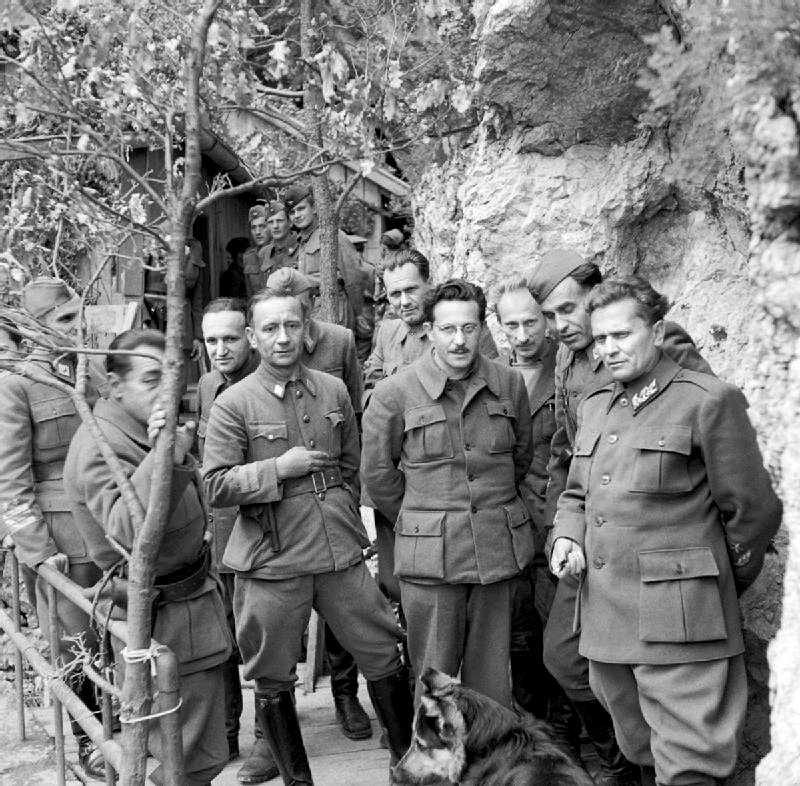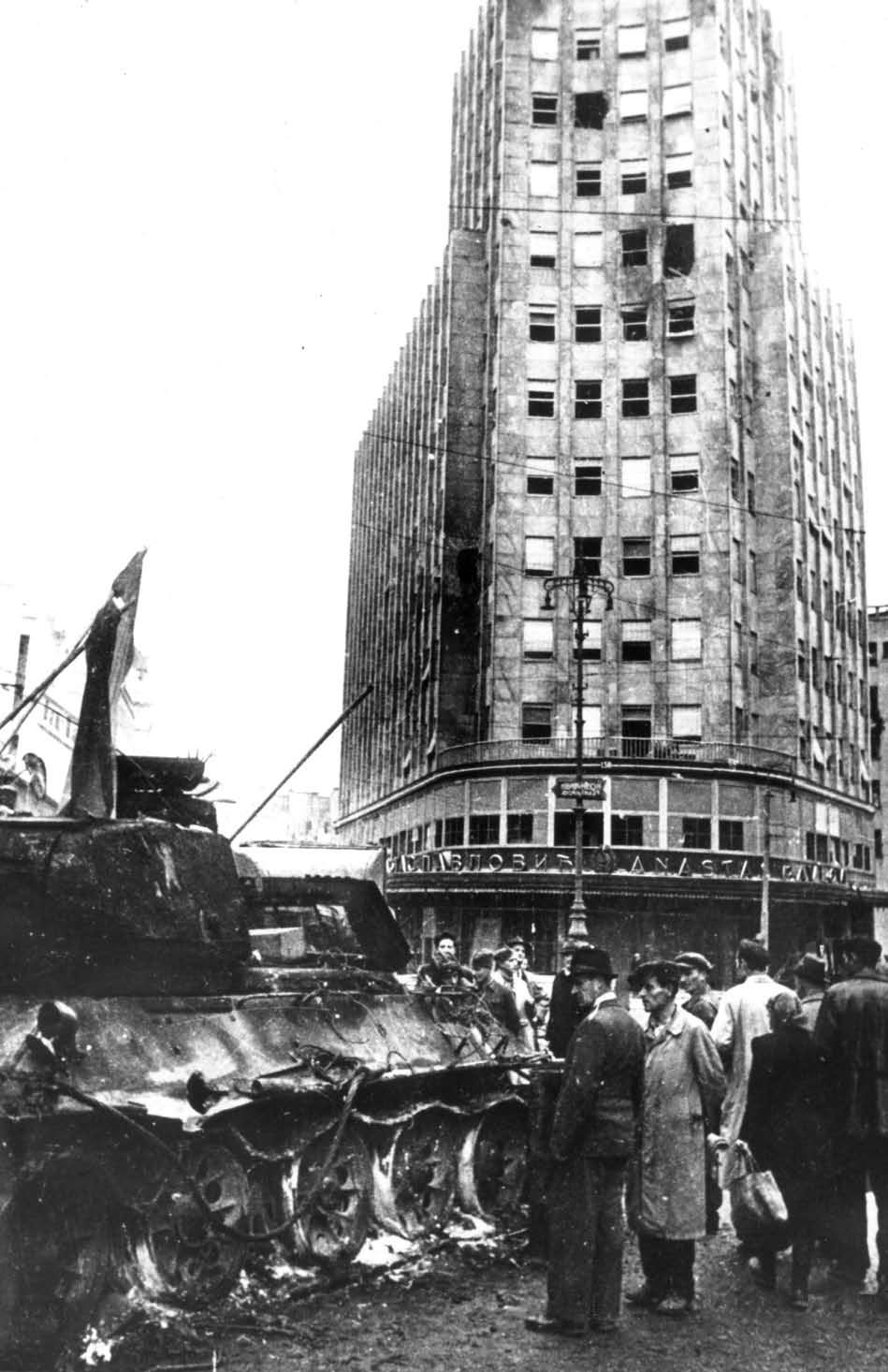If the partisans fall apart (fragment into independent competing groups) in May 1944 due to losing their military command structure the knock on effects could go well beyond just the Hungarian/Balkan front going better for the Axis.
The Chetniks now would be the only other major organized group of militants in the country and given their support for the Axis and document history of fighting the Partisans with the decapitating of the Partisans and enhancement of the prestige of the Axis as a result as well as the Chetniks being disfavored at Tehran (which also meant loss of material support) plus the Wallies not invading the Balkans
Mihailović would side with the Axis to fight the Partisans. This would be to establish his dominance of Yugoslav military groups and thus ensure his power within the region when Soviet forces arrive. With the Partisans cut off from the Allies missions and thus losing material and air support, as well as being fragmented due to the loss of central leadership as well as directives from the government in exile that helped unify the movement in 1944, they'd likely be nearly destroyed by the Chetniks and defections, if not people just going home due to loss of morale.
Though without a doubt he'd try to switch allegiance to the Soviets as soon as convenient as per OTL, until they show up in strength his group would likely make Yugoslavia quiet for the Axis, which likely helps the pull out of their forces in Greece and throughout the region. Given Mihailović's policy of non-confrontation with the occupiers to save civilian lives we could see substantially more German forces retreating intact out of Greece and presenting a much more formidable force in Croatia. You might potentially see him end up siding with the Axis if Soviet forces target him for being an anti-communist and collaborator with the Axis. That could well change everything to do with the war in the region.
As it was IOTL the Chetniks fought the Bulgarians, which probably would happen here too given that they were traditional enemies, which once again helps the Germans pull out of Greece intact and seriously hampers Soviet progress in the region.
IOTL the Partisans were pretty important to disrupting Axis defenses in Serbia after Romania switched sides and had been building up force in Serbia after breaking out of Bosnia and Montenegro, so with an uncoordinated Partisan movement under attack by the Chetniks the Germans would be free to coordinate and organize other than having to deal with Wallied air attacks (but ITTL not aided by Partisans). That means major operations like Ratweek don't really happen:

en.wikipedia.org
Without that operation German forces are free to withdraw by rail before the Bulgarians show up. That largely means the Belgrade offensive of OTL doesn't really happen as the Germans pull out much more quickly and intact as the Chetniks fight the Partisans and Bulgarian invasion which effectively covers their retreat into Hungary. That means more German forces are deployed to the front rather than anti-Partisan actions, which means they can hold the Soviets for a long while as Army Groups E and F then pull back and make the Danube line pretty impregnable. If that happens then Budapest isn't encircled and is not invaded, as the defensive line outside the city holds.
The big impact of that would then be that Poland isn't stripped of the vital panzer divisions that were to be the counterattack forces in case of a Soviet breakthrough, while all the planned new Hungarian divisions that were being stood up have time to actually get formed and deployed. That leaves the 3rd, 6th, and 20th panzer divisions in Poland/East Prussia, as well as the IV SS Panzer corps around Warsaw and the 1st Cavalry Corps on the Narew. Plus if the line in Hungary holds then the 6th Panzer army isn't sent to Hungary in February 1945, which means they can be a pretty major enhancement of Axis forces in the east.
Since IOTL Yalta, where the division of Europe was actually planned, didn't happen until February 1945 and by then Budapest was captured the Vistula-Oder offensive a smashing success, ITTL if the Soviets are stalled on the Danube and Budapest not taken as well as the Vistula offensive not being nearly as successful due to facing much more panzer divisions/armies than IOTL, potentially we could see the Yalta meeting not happen in February or if it does the Wallies getting an occupation zone much further east than IOTL. That is a massive change from OTL and could see Austria, Czechoslovakia, half of Hungary, part of Poland, and maybe most of Germany in the Wallied occupation zone, as the Soviets are stalled much further east in the face of larger German forces. The Cold War would be quite a bit different in that situation.

 en.wikipedia.org
en.wikipedia.org



